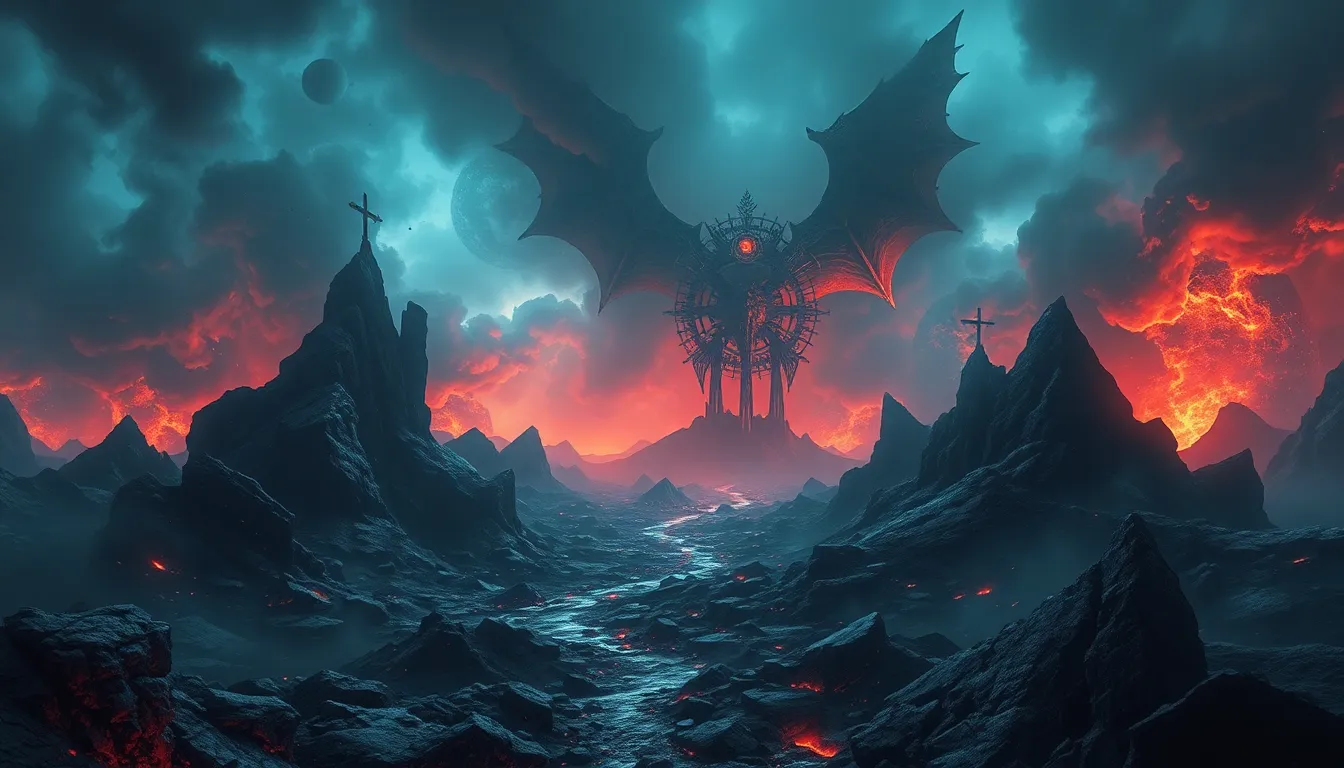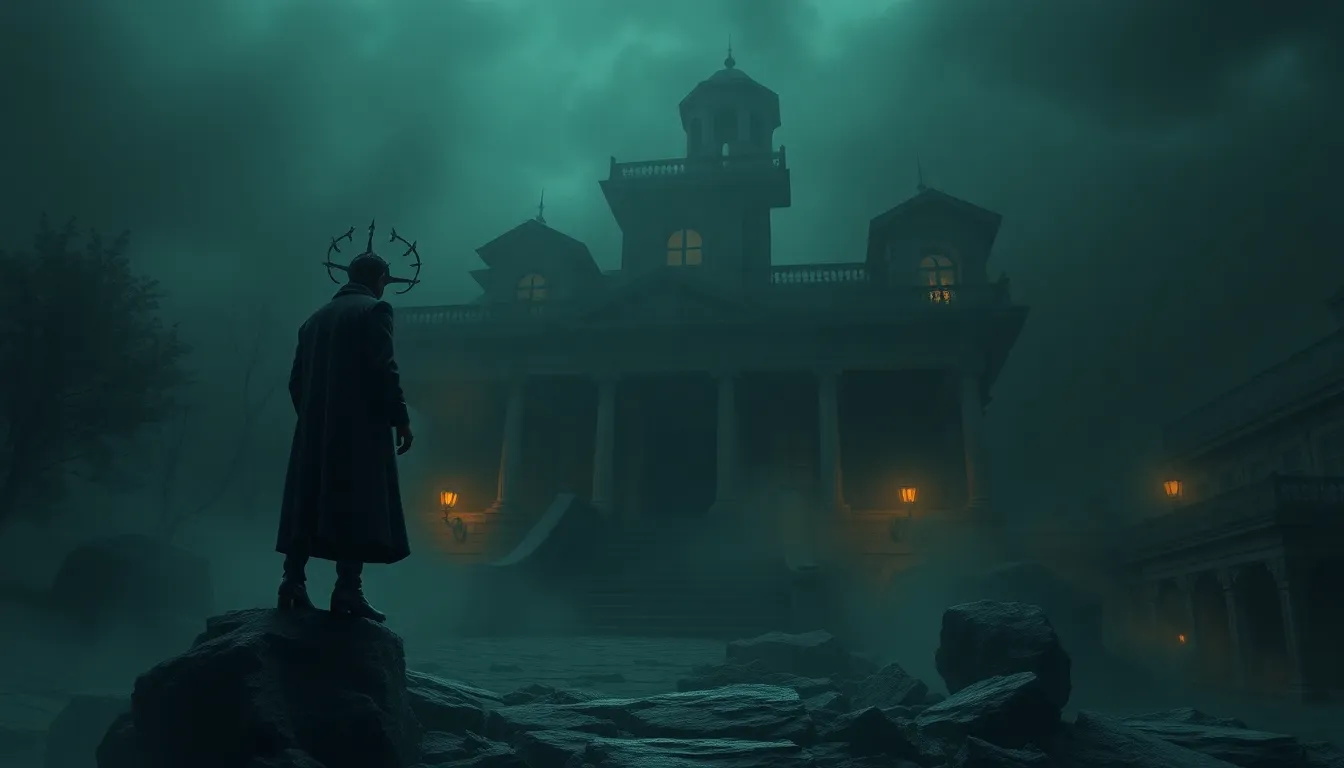The Myths of the Apocalypse: What Lies Beneath?
Introduction: Understanding Apocalypse Myths
The term “apocalypse” often evokes images of cataclysmic events and the end of civilization as we know it. Traditionally, it refers to a prophetic revelation regarding the ultimate destiny of humanity, often accompanied by themes of judgment and transformation. Across various cultures, apocalyptic myths serve as powerful narratives that reflect societal fears, moral lessons, and existential questions.
Common themes in these myths include the struggle between good and evil, the idea of renewal following destruction, and the quest for salvation. From the biblical tales in the Book of Revelation to the Hindu concept of cycles of creation and destruction, these narratives resonate deeply within the human psyche, providing frameworks to understand the chaos of life.
Historical Context: The Origins of Apocalypse Myths
Apocalyptic beliefs can be traced back to ancient civilizations, where they often intertwined with religious and cultural practices. For example:
- Mesopotamia: Myths of flooding and divine retribution, such as the Epic of Gilgamesh.
- Ancient Egypt: Beliefs surrounding the end of the world linked to the sun god Ra and the cyclical nature of life and death.
- Greco-Roman Traditions: The idea of a final judgement in texts like Plato’s “Myth of Er.”
Religious texts have significantly influenced apocalyptic narratives, particularly in Abrahamic faiths. The Book of Revelation in the New Testament presents vivid imagery of the end times, while Hindu scriptures describe cycles of creation (Srishti) and destruction (Pralaya), emphasizing rebirth and renewal.
Modern Interpretations: How Myths Have Evolved
As society evolved, so did the interpretations of apocalyptic myths. The transition from religious narratives to secular interpretations reflects broader cultural shifts.
- From Faith to Fear: Many contemporary beliefs about the apocalypse stem from secular concerns, such as nuclear war, pandemics, or technological disasters.
- Scientific Influence: Advances in science and technology have introduced new apocalyptic scenarios, often rooted in environmental degradation and artificial intelligence.
This evolution highlights a growing skepticism towards traditional religious narratives, with modern interpretations often focusing on human agency and responsibility in shaping our future.
Cultural Reflections: Apocalyptic Themes in Literature and Film
Literature and film serve as mirrors reflecting societal fears and anxieties about the apocalypse. Works like Cormac McCarthy’s “The Road” and the “Mad Max” franchise offer grim portrayals of a post-apocalyptic world. These narratives often explore themes of survival, morality, and the human condition in the face of total collapse.
The media plays a significant role in shaping public perception of the apocalypse. News cycles filled with reports on climate change, political unrest, and global pandemics contribute to a pervasive sense of impending doom. This constant exposure can amplify fears and influence cultural narratives surrounding the apocalypse.
Psychological Underpinnings: Why We Fear the End
The fear of the apocalypse taps into deep psychological roots related to mortality and existential dread. Humans are inherently aware of their mortality, and apocalyptic scenarios serve as a projection of our fears about the end of life and civilization.
- Fear of the Unknown: The apocalypse represents the ultimate unknown, provoking anxiety about what comes next.
- Existential Dread: Many individuals grapple with the meaning of life, and apocalyptic myths can magnify feelings of futility and despair.
Understanding these psychological factors can provide insight into why apocalyptic narratives resonate so strongly across different cultures and eras.
The Role of Technology: Apocalypse in the Digital Age
In the digital age, technology has transformed the landscape of apocalyptic myths. The rapid advancement of artificial intelligence, biotechnology, and environmental technologies has given rise to new fears and narratives.
- AI and Automation: Concerns about AI surpassing human intelligence and leading to societal collapse are prevalent in contemporary discourse.
- Climate Change: Environmental degradation and climate change represent a very real threat, often framed within apocalyptic narratives.
Social media further amplifies these fears, allowing apocalyptic narratives to spread quickly and widely. Online platforms can create echo chambers where doomsday scenarios are shared, reinforcing collective anxieties.
Environmental Concerns: Climate Change and the New Apocalypse
Climate change has emerged as a central theme in modern apocalyptic thinking. The connection between ecological crises and apocalyptic narratives is increasingly evident, as extreme weather events, rising sea levels, and biodiversity loss paint a grim picture of the future.
Climate change narratives often evoke apocalyptic imagery, emphasizing the urgency of addressing these global challenges. This framing can motivate action but also lead to feelings of hopelessness and despair.
Debunking Myths: Separating Fact from Fiction
Despite the prevalence of apocalyptic myths, many misconceptions persist about what could lead to an apocalypse. Common myths include:
- The inevitability of catastrophic events: While many challenges exist, there are also numerous paths to avoid disaster through human intervention.
- Misunderstanding scientific predictions: Scientific perspectives often provide nuanced views on potential risks rather than deterministic outcomes.
By debunking these myths, we can foster a more informed public discourse that encourages proactive measures rather than fatalistic resignation.
Coping Mechanisms: How Societies Respond to Apocalyptic Fears
In response to apocalyptic fears, societies have developed various coping mechanisms, including cultural practices and rituals. These responses can include:
- Community Engagement: Many communities come together to address shared fears, fostering resilience through collective action.
- Rituals and Symbolism: Cultural rituals may serve to reaffirm values, provide solace, and create a sense of control in the face of uncertainty.
Understanding these coping mechanisms can offer insights into how societies adapt and respond to existential threats.
Conclusion: The Future of Apocalypse Myths
As we navigate an increasingly complex world, the relevance of apocalyptic narratives persists. These myths illuminate our fears, aspirations, and the human condition, prompting reflection on our shared future.
By understanding the historical, psychological, and cultural dimensions of apocalypse myths, we can better equip ourselves to face the challenges ahead. Ultimately, these narratives can inspire action, resilience, and a commitment to creating a sustainable future, rather than succumbing to despair.



